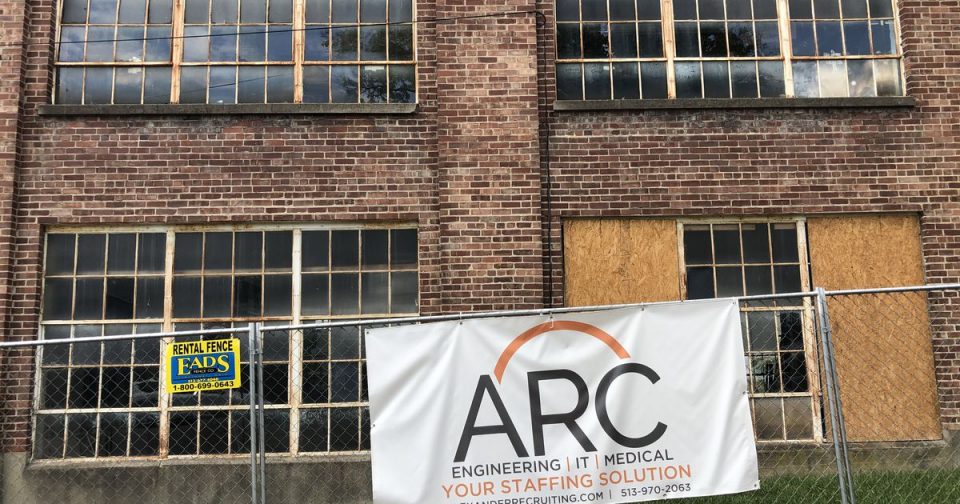Lebanon’s new shoe factory, The Elbinger-Meis Shoe MFG. Co. Photo from the railroad Souvenir book, 1912, The Dayton, Lebanon and Cincinnati Railroad and Terminal Company and Tributary Industries
Credit: Courtesy of Joni Knopp
Credit: Courtesy of Joni Knopp
In 2019 the city commission approved a certificate giving the Alexanders – also owners of the Rose & Remington retail chain – one year to complete improvements. This was expected to give the Alexanders enough time to complete the first phase, including the window replacement it approved in 2014.
The first phase of a $10 million plan to turn an old shoe factory into a microbrewery and event center is moving ahead in Lebanon.
In February, the city dropped a lawsuit pressing Alexanders to correct the code violations, some of which have since been fixed. Broken windows have been boarded up and the building secured with a tall fence, but the window replacement has yet to be completed.
Last week, the commission, following the staff recommendation, gave the Alexander company until April 16, 2021, to complete all the improvements “associated with the outstanding code violations” and Oct. 20, 2021, to complete work in the first phase.
In addition to the windows, Alexander is to brick over three windows and two doors and remove a metal exterior stair and landing on the Cherry Street side. Doors on several other sides to be replaced or added, a metal chimney and fire escape replaced.
A sign for a construction company hangs from a security fence around a former shoe factory in Lebanon proposed for a $12 million redevelopment.
Credit: Lawrence Budd
Credit: Lawrence Budd
The plan also calls for a building addition for interior stairwells into the building and a rear deck.
Failure to provide an update by March 20, 2021 could result in the certificate’s cancellation.
“No further extension shall be granted,” according to the conditions attached to the certificate of appropriateness extension.
Alexander thanked the commission for the extension and said the project had been slowed by the pandemic and inability to get required permits.
“Working through the pandemic has created a lot of challenges,” Alexander said.


